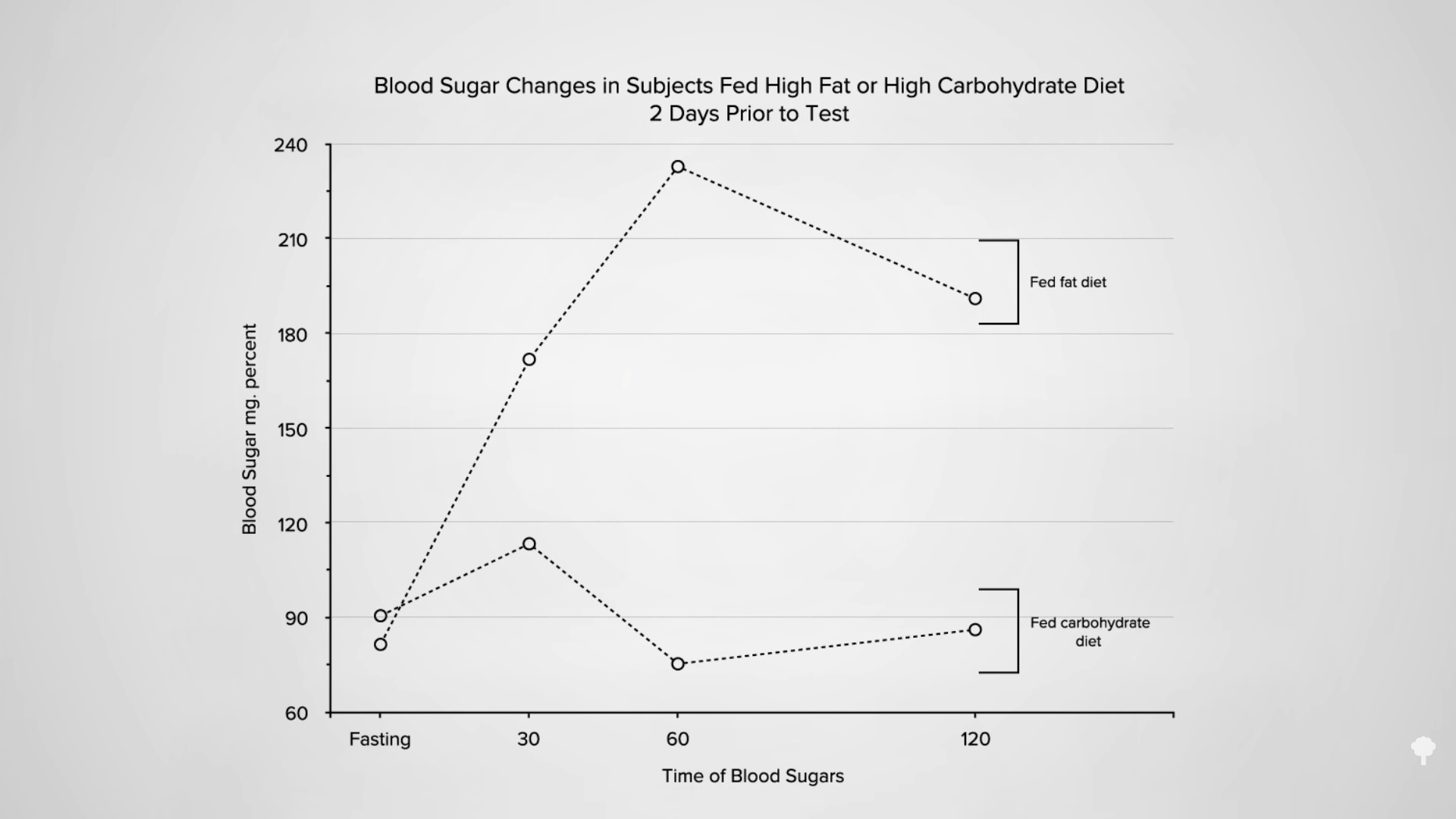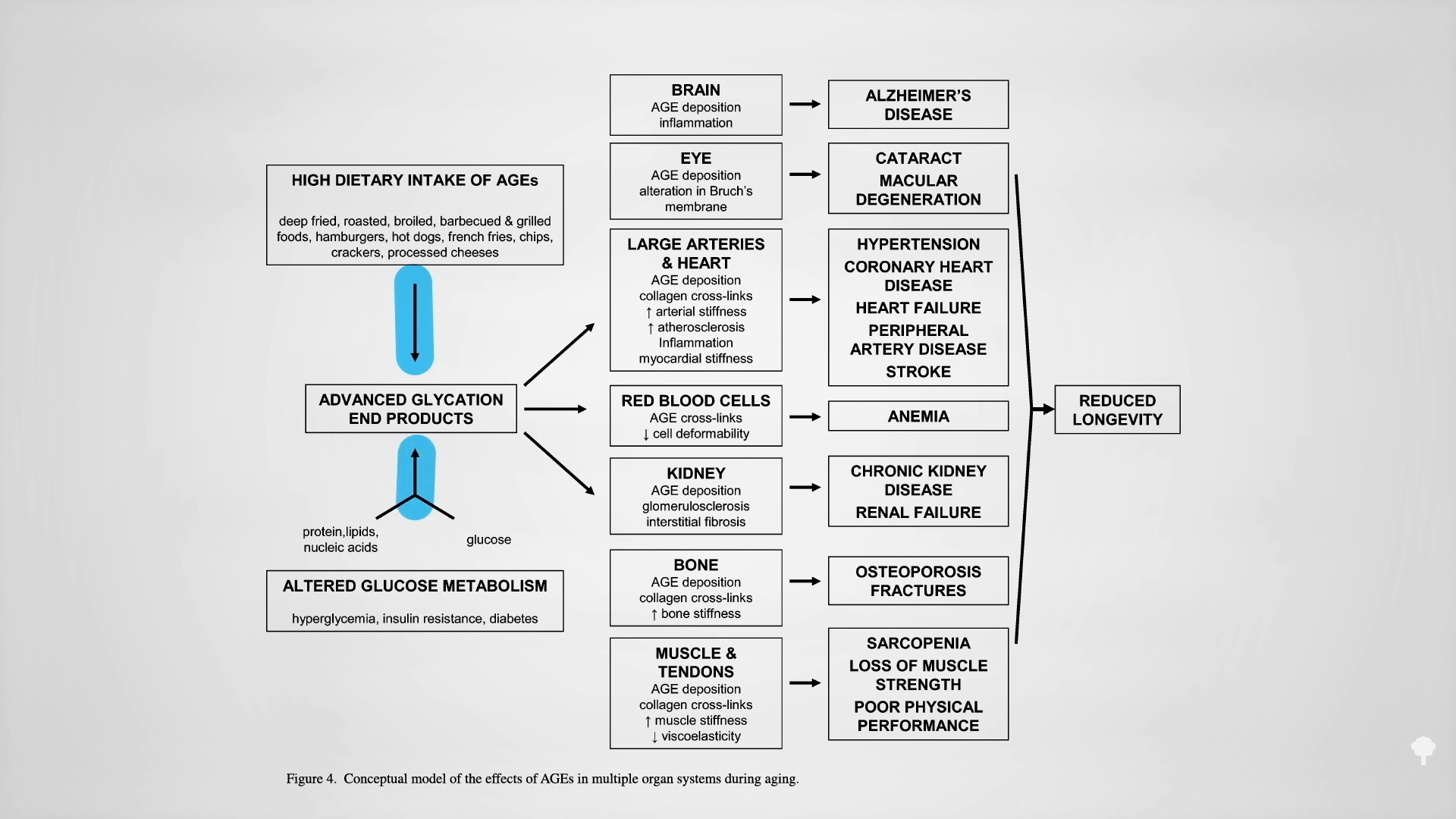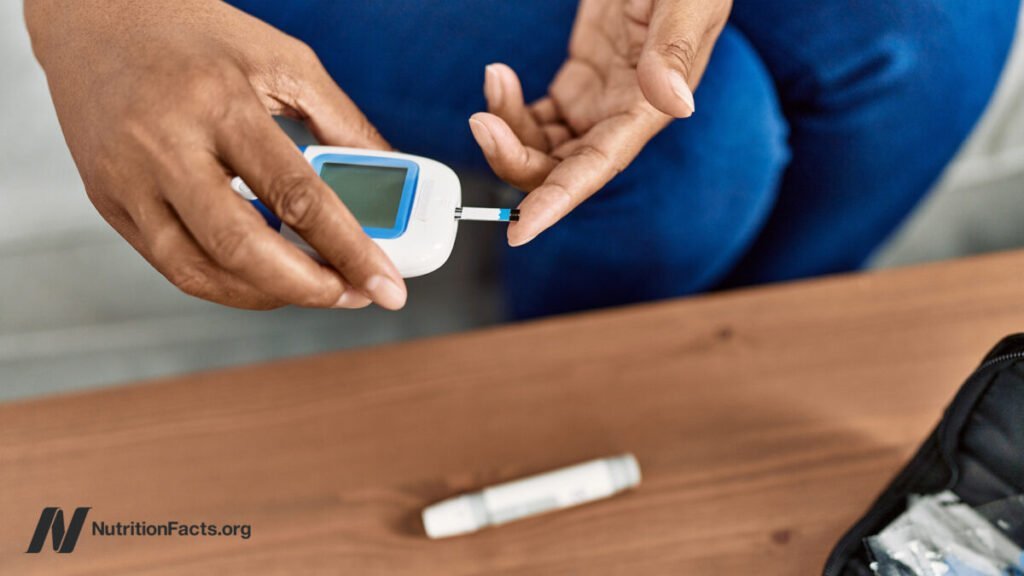[ad_1]
Ketogenic diets are tested for reversing diabetes.
At the beginning of my video Can a Ketogenic Diet Improve or Aggravate Diabetes?, ketogenic diets may decrease blood sugar levels more effectively than traditional diets. Remarkably, a keto product company asserts that ketogenic diets can “reverse” diabetes. However, they are conflating the symptom (elevated blood sugars) with the condition (carbohydrate intolerance). Individuals with diabetes cannot adequately metabolize carbohydrates, resulting in high blood sugars. Clearly, by predominantly consuming fat, blood sugars will remain low, but concurrently, the underlying condition may be exacerbated.
We have been aware for nearly a century that implementing a ketogenic diet can significantly escalate carbohydrate intolerance within just two days. Below and at 0:46 in my video, you can observe a chart from the study illustrating the blood sugar reaction two days after consuming sugar. On a high-carb diet, the blood sugar response is approximately 90 mg/dL. However, after a high-fat diet, the blood sugar response to the same quantity of sugar is around 190 mg/dL, almost double. Carbohydrate intolerance drastically increased on a high-fat diet.

Following a week on an 80 percent fat diet, the blood sugar spike in reaction to the same carb load can be quintupled, in comparison to a week on a low-fat diet, as observed in the graph below and at 1:12 in my video. 
Even a single day of excessive dietary fat intake can achieve this, as depicted in the graph below and at 1:26 in my video. Consuming a fatty dinner the night before a diabetes test can negatively impact the outcomes. Just one high-fat meal can exacerbate carbohydrate intolerance, the root cause of diabetes, within four hours.

Following substantial weight loss through any method, whether due to cholera or bariatric surgery, type 2 diabetes can be reversed. However, a keto diet for diabetes may not solely mask the issues, but actively worsen the situation.
Trying to devise a fitting analogy has proven challenging. It is simple to think of remedies that only address the symptoms without addressing the underlying condition, like administering aspirin to an individual with pneumonia to reduce their fever, instead of providing antibiotics. Nonetheless, a keto diet for diabetes is even more detrimental as it may alleviate the symptoms while actively aggravating the condition. It is akin to resolving the fever by exposing the pneumonia patient to a snow bank or “healing” an amputated finger by amputating the hand. One of the founders of masteringdiabetes.org suggested that it is comparable to a CEO who improves their poor financial standing by accumulating a large amount of debt. The outward figures may appear improved, but internally, the company is merely digging itself into a deeper hole.
Do you recall The Club, the popular anti-theft device for cars that fastens onto the steering wheel and immobilizes it, permitting only minimal movement? Imagine being in a car at the top of a hill with the steering wheel locked. Then, the car begins rolling down the hill. What would you do? Suppose there is also an obstruction beneath your brake pedal. The keto-diet equivalent reaction to this scenario is neglecting the fact that you are hurtling downhill with a locked steering wheel and no brakes—just adhere to absolutely straight deserted roads without any stop signs or traffic lights. Problem solved! The longer you persist, the greater the velocity you will attain. If you encounter a dietary obstacle or veer off course, the repercussions could become increasingly catastrophic with time. Nevertheless, by adhering to the strict keto regimen, everything will be perfectly fine! In contrast, the non-keto response would be to simply unlock the steering wheel and remove the obstruction under the brake pedal. In other words, rectify the underlying issue instead of disregarding the situation and subsequently facing adversity.
The reason advocates of keto claim they can “reverse” diabetes is by successfully tapering off insulin for type 2 diabetics. This is akin to remedying the need for a wheelchair through faith-healing by confining the individual to bed rest indefinitely. There is no necessity for a wheelchair if there is no movement. Their carbohydrate intolerance persists. Their diabetes persists. In fact, it could be equally severe or even exacerbated. Type 2 diabetes is reversed when an individual is weaned off insulin while following a typical diet like everyone else. Only then is diabetes no longer present. A genuine diabetes reversal diet, as depicted below and at 4:58 in my video, is essentially the antithesis of a ketogenic diet: assisting diabetics in discontinuing insulin within a few weeks by consuming over 300 grams of carbs per day!  The paradox doesn’t end there. A reason individuals with diabetes endure nerve and artery harm is because of an inflammatory metabolic toxin, which develops at elevated blood sugar levels, known as methylglyoxal. Methylglyoxal serves as the most formidable maker of advanced glycation end products (AGEs), which are connected to degenerative illnesses—from Alzheimer’s and cataracts to kidney disease and strokes, as evident below and at 5:31 in my video.
The paradox doesn’t end there. A reason individuals with diabetes endure nerve and artery harm is because of an inflammatory metabolic toxin, which develops at elevated blood sugar levels, known as methylglyoxal. Methylglyoxal serves as the most formidable maker of advanced glycation end products (AGEs), which are connected to degenerative illnesses—from Alzheimer’s and cataracts to kidney disease and strokes, as evident below and at 5:31 in my video.



This constitutes a segment of a seven-video series on keto, accessible in the associated videos below.
I have also recently addressed diabetes.
Discover at a discounted price your Free Personalized Birth Chart Reading for a limited time…
[ad_2]



7 Comments
Khám phá thế giới giải trí trực tuyến đỉnh cao tại MM88, nơi mang đến những trải nghiệm cá cược thể thao và casino sống động.
iwin – nền tảng game bài đổi thưởng uy tín, nơi bạn có thể thử vận may và tận hưởng nhiều tựa game hấp
Với giao diện mượt mà và ưu đãi hấp dẫn, MM88 là lựa chọn lý tưởng cho các tín đồ giải trí trực tuyến.
Đến với J88, bạn sẽ được trải nghiệm dịch vụ cá cược chuyên nghiệp cùng hàng ngàn sự kiện khuyến mãi độc quyền.
**mitolyn official**
Mitolyn is a carefully developed, plant-based formula created to help support metabolic efficiency and encourage healthy, lasting weight management.
https://askoff.ru
asklong.ru